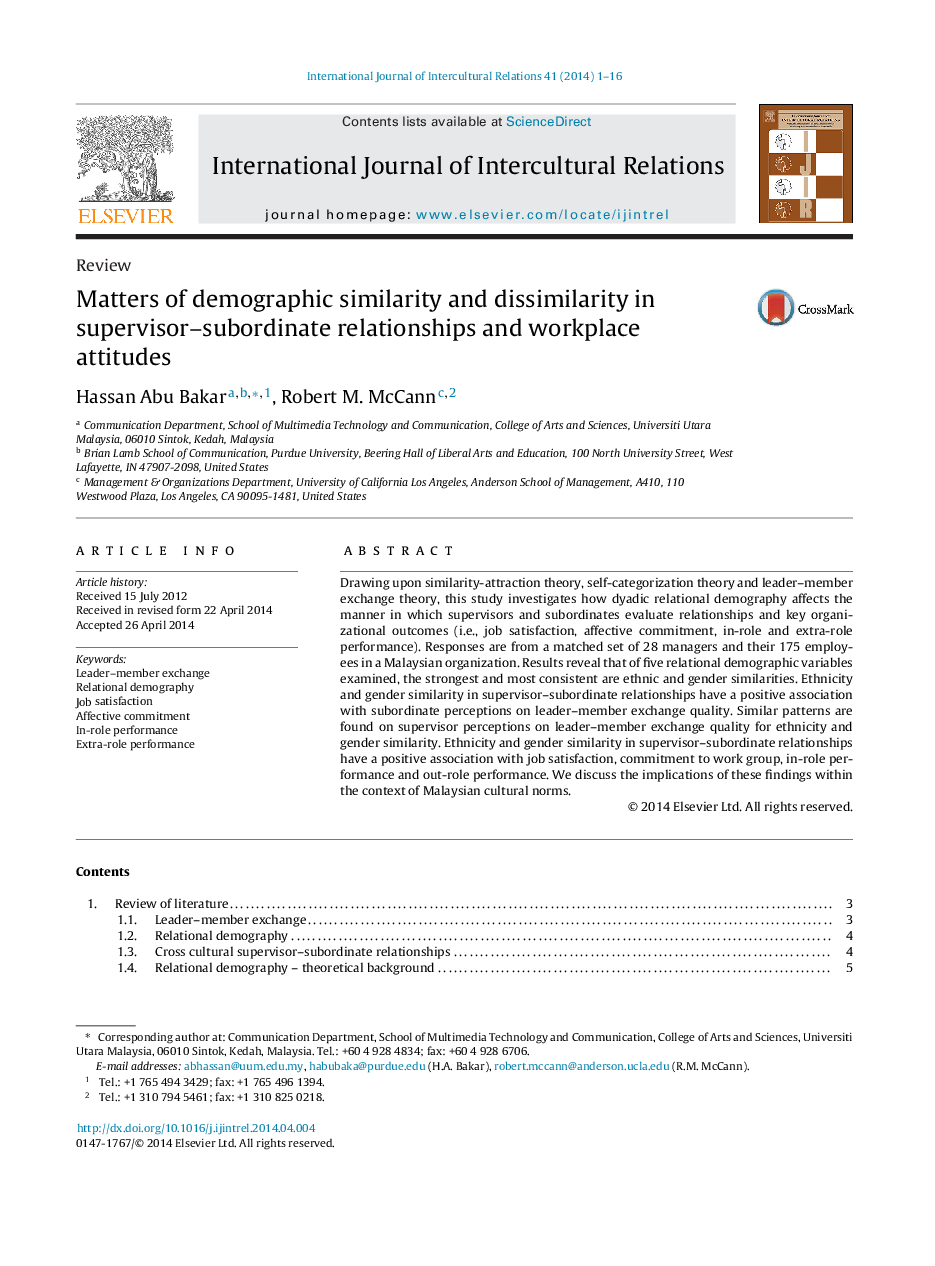| Article ID | Journal | Published Year | Pages | File Type |
|---|---|---|---|---|
| 946965 | International Journal of Intercultural Relations | 2014 | 16 Pages |
Drawing upon similarity-attraction theory, self-categorization theory and leader–member exchange theory, this study investigates how dyadic relational demography affects the manner in which supervisors and subordinates evaluate relationships and key organizational outcomes (i.e., job satisfaction, affective commitment, in-role and extra-role performance). Responses are from a matched set of 28 managers and their 175 employees in a Malaysian organization. Results reveal that of five relational demographic variables examined, the strongest and most consistent are ethnic and gender similarities. Ethnicity and gender similarity in supervisor–subordinate relationships have a positive association with subordinate perceptions on leader–member exchange quality. Similar patterns are found on supervisor perceptions on leader–member exchange quality for ethnicity and gender similarity. Ethnicity and gender similarity in supervisor–subordinate relationships have a positive association with job satisfaction, commitment to work group, in-role performance and out-role performance. We discuss the implications of these findings within the context of Malaysian cultural norms.
